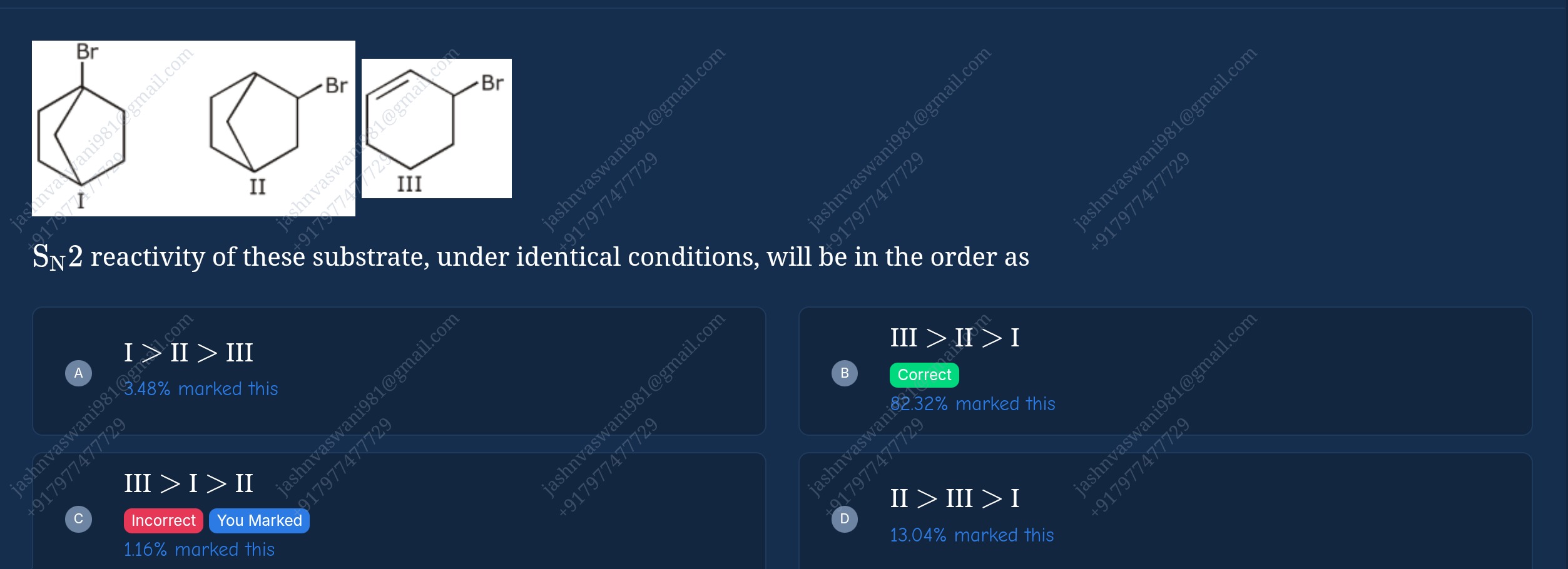Question
Question: Br $S_N2$ reactivity of these substrate, under identical conditions, will be in the order as...
Br
SN2 reactivity of these substrate, under identical conditions, will be in the order as

I > II > III
III > II > I
III > I > II
II > III > I
III > II > I
Solution
Solution:
-
Step 1: In an SN2 reaction, the halide’s reactivity depends on steric accessibility at the reactive carbon.
-
Step 2: Structure III – The bromide is at an allylic (or less-hindered) sp³ center (its attachment to a double‐bond system provides resonance stabilization and minimal steric hindrance), making it most reactive.
-
Step 3: Structures I and II – Both are bridged bicyclic halides. However, the bridgehead carbon in structure I, with a fused three‐membered ring, suffers from severe geometric constraints (hindering the backside attack needed in SN2). In contrast, structure II (with a fused four‐membered ring) is comparatively less hindered.
-
Step 4: Thus, the SN2 reactivity order becomes:
Brief Explanation:
- Structure III is an allylic halide and undergoes SN2 easily (least steric hindrance, resonance stabilization).
- Structure II is less hindered than I as the four‐membered ring allows better backside access.
- Structure I is most hindered due to the small (three‐membered) ring fused at the bridgehead.
